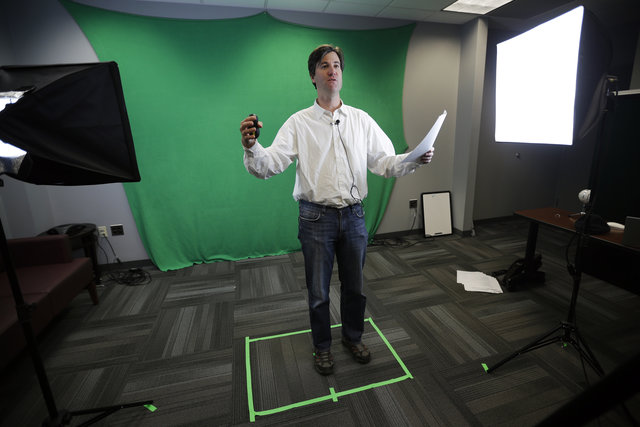MOOCs? Distance learning? Technology’s impact on higher education
By Al Gini

MOOCs? Distance learning? Technology’s impact on higher education
By Al Gini
This past summer I traveled to South Africa to lecture at a number of private and state universities. South Africa has 23 institutions of higher education, which offer a full range of majors and curricula. And while these schools offer their students a traditional classroom experience, each of these institutions also offers its students some distance learning options. Depending on college and the major requirements, a student is able to take all, a large portion or at least some of their core classes online.
The various methods of distance learning include the old fashioned “snail mail” correspondence school method: Students do a series of written assignments and mail them to an instructor, who corrects and grades them. There are also telecast lectures, interactive broadcasts that allow students to interrupt a lecture to ask a question or request more detailed information. Finally, there are computer-based classes that offer either one-to-one experiences or MOOCs — massive open online courses — that operate on a virtual classroom and chat room model.
South African schools have invested so heavily in distance-learning methods for both practical and pedagogic reasons. South Africa needs to educate its growing population in order to maintain its relatively new status as a democratic nation. Distance learning reaches more potential students at a much more affordable price.
In American education, cost is nearing a tipping point. Post 9/11, nearly all universities have dramatically increased their tuition and most state schools have experienced a significant diminishment of government support; some state schools have been forced to more than double tuition since 2001. Both parents and students are looking for ways to diminish the overall cost of a university education.
One plan widely discussed in the halls of academia is to reduce the on campus university experience from four to three years without radically changing the course load — students would be in residence for three years and be charged three years of tuition. While in residence, besides taking face-to-face classes, they would also fit in one year of virtual classes at their convenience at no extra charge. These virtual classes would usually be required courses not in a student’s major. The primary argument for this plan is that it gets students through school at a faster pace and at a lesser cost without sacrificing their overall learning experience.
I’m not sure this curriculum telescoping will really work. But, like South Africa, we’ve got to learn how to be more creative and experimental. Just as South Africa needs to educate its youth to service and maintain its democratic form of government, so do we!
Al Gini is a Professor of Business Ethics and Chairman of the Management Department in the Quinlan School of Business at Loyola University Chicago.
